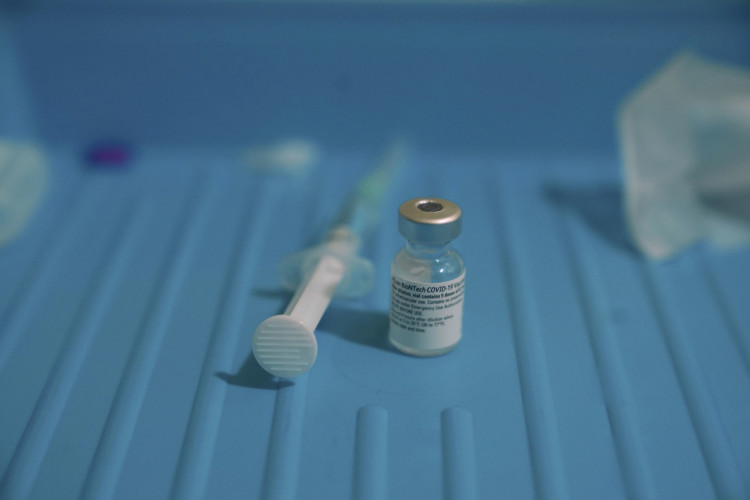A German government spokesperson stated on Wednesday (Dec 21) that Berlin has sent its first batch of BioNTech COVID-19 vaccines to China, which will be administered first to German expats. This is the first foreign coronavirus vaccine to be supplied to the country.
There are now approximately 20,000 German nationals in China.
Following a deal struck during Chancellor Olaf Scholz's visit to Beijing last month, China agreed to allow German nationals in China to obtain the shot, with the German leader encouraging Beijing to make the shot widely available to Chinese citizens as well.
"I can confirm a shipment of the BioNTech vaccine is on its way to China," the representative told journalists in Berlin. "We are working on the possibility that besides Germans also other foreigners can be vaccinated with BioNTech."
The spokesperson said that in exchange, Chinese nationals living in Europe can receive the SinoVac vaccine made in China.
The official said Berlin is lobbying for foreigners other than German nationals to be permitted access to the shot if they want it, but no additional information was available regarding the date or magnitude of the delivery.
The statement follows news earlier this month that Germany's health ministry had approved a license for the Sinovac COVID-19 vaccine from China to be imported into Germany and administered to Chinese residents living there.
The World Health Organization has approved the use of the shot, despite Europe's pharmaceuticals agency not having done so.
So far, China has insisted on using only domestically made vaccinations, which are not based on Western mRNA technology but rather on more conventional technologies.
A little portion of a protein typically located on the viral outer membrane is introduced as part of an mRNA vaccine's delivery mechanism. Cells can manufacture the viral protein by utilizing this mRNA.
The immune system identifies that the protein is foreign as part of a typical immunological response and creates specialized proteins known as antibodies. By identifying specific viruses or other pathogens, adhering to them, and designating the pathogens for eradication, antibodies aid in the body's defense against infection.
Once created, antibodies persist in the body even after the infection has been eliminated, allowing the immune system to respond promptly if exposed again. When a person is exposed to a virus after receiving mRNA vaccine for it, antibodies recognize it rapidly, attach to it, and designate it for destruction before it causes major illness.
Allowing German expats access to a Western shot is a significant gesture to Berlin, showing Beijing's efforts to repair ties with the EU's largest economy following years of disputes over trade and climate.
BioNTech's Frankfurt-listed shares momentarily surged on news of the shipment, rising 1.9% at 1456 GMT. Pfizer shares were up 0.6% in New York.





